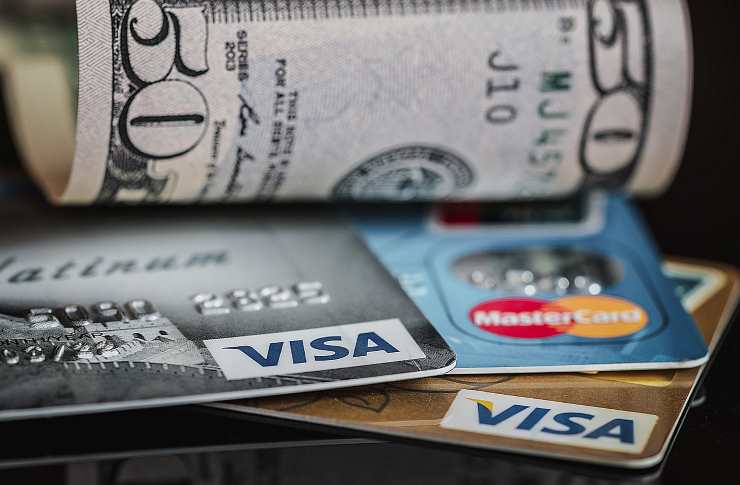Credit Card Essentials: A Complete Consumer Guide 2025
Learn how credit cards work, the main types available, and how to use them wisely to get rewards, protect purchases, and build credit. This comprehensive guide explains fees, APRs, common perks, and practical tips to manage balances and improve your credit score—essential reading before choosing a card.

Credit cards are a powerful financial tool that can make everyday purchases easier, offer valuable perks, and help establish a credit history when used carefully. This guide breaks down the main card types, typical benefits, the fees and rates to watch for, and practical strategies to maintain healthy credit habits.
Types of Credit Cards
Credit cards come in formats designed to meet different financial goals and life stages. Understanding the distinctions helps you choose the right product for your needs:
- Rewards cards: These cards return value on spending through points, airline miles, or cashback. They’re ideal for people who pay their balances in full or can offset annual fees through redeemed benefits.
- Secured cards: Secured products require a cash deposit as collateral and are intended for consumers rebuilding or establishing credit. Over time, responsible use may qualify you for an unsecured card.
- Business cards: Tailored for company expenses, business cards often include tools for expense tracking, employee cards, and category-specific rewards for travel, supplies, or advertising.
- Low-interest cards: If you expect to carry a balance occasionally, a card with a lower APR can reduce financing costs. These cards prioritize lending terms over rewards.
- Student cards: Simplified underwriting and lower credit limits make student cards a common starter option for college students learning financial responsibility.
Key Benefits and Protections
Beyond convenience, many cards include protections and premium services that can add significant value:
- Purchase protection and extended warranties: Some issuers offer coverage for damaged or stolen items and extend manufacturer warranties.
- Fraud protection and zero liability: Most major networks provide zero liability for unauthorized transactions, limiting your exposure from fraud.
- Travel perks: Premium travel cards may include baggage insurance, trip cancellation/interruption insurance, airport lounge access, and concierge services.
- Reward redemptions: Points, miles, and cashback can offset travel or everyday expenses when redeemed strategically. Keep in mind redemption rates and transfer partners when evaluating a rewards card.
Typical Fees and Interest
Knowing the costs associated with a card is essential before you apply. Fees and rates vary widely by issuer, card level, and your credit profile. Below is a quick reference table of common fee types and typical ranges.
| Fee Type | Typical Range | Notes |
|---|---|---|
| Annual Fee | $0-$550 | Higher fees usually accompany premium travel or rewards cards |
| APR | 15.24%-29.99% | Individual rates depend on creditworthiness and market conditions |
| Balance Transfer Fee | 3-5% | A minimum fee often applies; promotional APRs may offset cost temporarily |
| Late Payment Fee | Up to $40 | Repeated late payments can trigger penalty APRs or other restrictions |
| Foreign Transaction Fee | 0-3% | Many travel-focused cards waive this fee |
Prices, rates, or cost estimates mentioned in this article are based on the latest available information but may change over time. Independent research is advised before making financial decisions.
How to Use a Credit Card Responsibly
Responsible card management protects your finances and maximizes benefits. Follow these best practices:
- Pay on time: Timely payments prevent late fees and protect your credit history. Consider automatic payments to avoid missed due dates.
- Keep utilization low: Aim to use less than 30% of your available credit on each card, and lower if you’re targeting faster score improvements. Low utilization signals prudent credit management to scoring models.
- Monitor accounts regularly: Check statements and transaction alerts to detect unauthorized activity quickly. Report suspicious charges immediately to your issuer.
- Understand terms and limits: Read the card agreement to know how interest is calculated, when grace periods apply, and what penalties exist for missed payments.
Credit Score Impact
Credit cards are among the most influential credit products for building a history and scoring well:
- Payment history: This is the single largest factor in most scoring models. Consistently on-time payments strengthen your score over time.
- Credit utilization: The ratio of your balances to credit limits matters. Lower ratios generally improve your score.
- Length of credit history: Older accounts contribute positively by demonstrating long-term credit management. Closing long-standing cards can shorten your average account age.
- Credit mix and inquiries: Having a variety of credit types can help, but frequent hard inquiries (from multiple new card applications) can temporarily lower your score.
Positive behaviors—paying on time, maintaining low balances, and keeping accounts open—help build credit. Conversely, missed payments, high utilization, and defaults damage your score and can be difficult to reverse quickly.
Choosing the Right Card
Match features to your priorities. If you travel often, seek cards that waive foreign transaction fees and offer travel insurance or lounge access. If you want simplicity, a no-annual-fee cashback card may be best. For credit-building, consider secured or student cards with reporting to major bureaus.
Compare offers not just by headline rewards, but by effective value: factor in annual fees, APRs, redemption flexibility, and any intro bonuses or promotional APR periods.
Final Considerations
Credit cards can provide convenience, protections, and meaningful rewards when chosen and used wisely. Before applying, evaluate fees, interest rates, and whether the card’s benefits align with your spending habits. With disciplined use—regular monitoring, on-time payments, and prudent borrowing—credit cards can be a helpful part of a solid financial plan.






